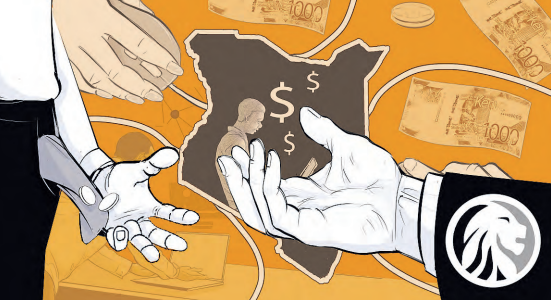

Kenya’s revenue collection strategy is in disarray.
Parliament passed the Division of Revenue Bill, 2024, and President William Ruto signed it into law.
But when the Finance Bill, 2024, a cornerstone of the government’s plans, failed due to a groundswell led by Gen Z, it took the country to unchartered fiscal territory.
The County Allocation of Revenue Bill, 2024, was passed by Parliament but vetoed by the president, who instead compelled lawmakers to amend the Division of Revenue Act.
Now both Houses are gridlocked over these amendments.
Even my party leader, Raila Odinga, has accused some MPs of attempting a power grab through these changes.
Amid this state of flux, the government has initiated a fresh round of public participation on tax legislation.
The National Assembly’s Finance committee is this week crisscrossing six counties in two days to solicit views on four bills: the Tax Laws (Amendment) Bill, 2024, the Tax Procedures (Amendment) Bill, 2024, and two amendments to the Public Finance Management Act.
This rushed process comes after earlier public consultations on tax policy yielded limited results.
The Treasury, under Cabinet Secretary John Mbadi, faces an unenviable challenge: funding national and county governments in an environment where traditional revenue-raising mechanisms are proving unworkable.
In its desperation, the government appears to be resorting to a troubling strategy; bypassing Parliament and public participation by unilaterally hiking levies and fees across government entities.
This backdoor approach to taxation risks suffocating commerce, stifling innovation and unfairly burdening ordinary Kenyans.
One striking example is the Ministry of Immigration’s exorbitant increase in work permit fees for expatriates.
Previously, businesses could secure a work permit for Sh100,000 per year, a necessary investment for companies seeking specialised expertise to train local workers.
Without any public participation or parliamentary debate, that fee has skyrocketed to Sh500,000 per year.
This sudden increase adds a significant financial burden to businesses.
Work permits play a crucial role in Kenya’s economic development.
By pricing these permits so high, the government risks choking off this crucial skills pipeline, leaving local businesses scrambling for talent and undermining long-term capacity-building in the country.
Another troubling case is the Kenya Revenue Authority’s proposal to use e-commerce platforms as tax collectors.
Companies like Jumia and Glovo are pillars of Kenya’s growing digital economy.
They have already streamlined tax compliance by collecting Value Added Tax for KRA.
But now, KRA wants e-commerce platforms to withhold an additional five percent tax from suppliers’ gross sales.
This measure, if implemented, would be disastrous.
The policy defies logic and fairness.
Brick-and-mortar stores are not required to withhold taxes from their suppliers.
Why should e-commerce platforms bear this additional burden?
Such a move risks driving businesses away from online marketplaces entirely and sending them back to traditional markets or smaller, informal setups where tax compliance is minimal.
The broader economic consequences are dire.
If platforms like Jumia cannot operate sustainably, they could shut down their Kenyan operations.
Jumia, a company that’s listed on the New York Stock Exchange, employs nearly 1,000 people in Kenya.
The ripple effects of its closure would include job losses for warehouse workers, drivers and countless others in its ecosystem.
Glovo, which supports many delivery workers, faces similar risks.
The irony is that Kenya’s e-commerce sector has been one of the brightest spots in our struggling economy.
Projections showed an average annual growth rate of 16.4 per cent by 2025, driven by rising smartphone penetration, internet access and a growing middle class.
Instead of nurturing this potential, it looks like we are poised to smother it under punitive tax policies.
I therefore take this opportunity to urge my colleagues in government to rethink our approach.
Taxation must be fair, predictable and conducive to economic growth.
Instead of piling on new taxes and levies, my friend Mbadi should put some serious thought into simplifying and rationalising our tax system.
LEDAMA OLEKINA is the Minority Whip of the Senate and senator of Narok County


